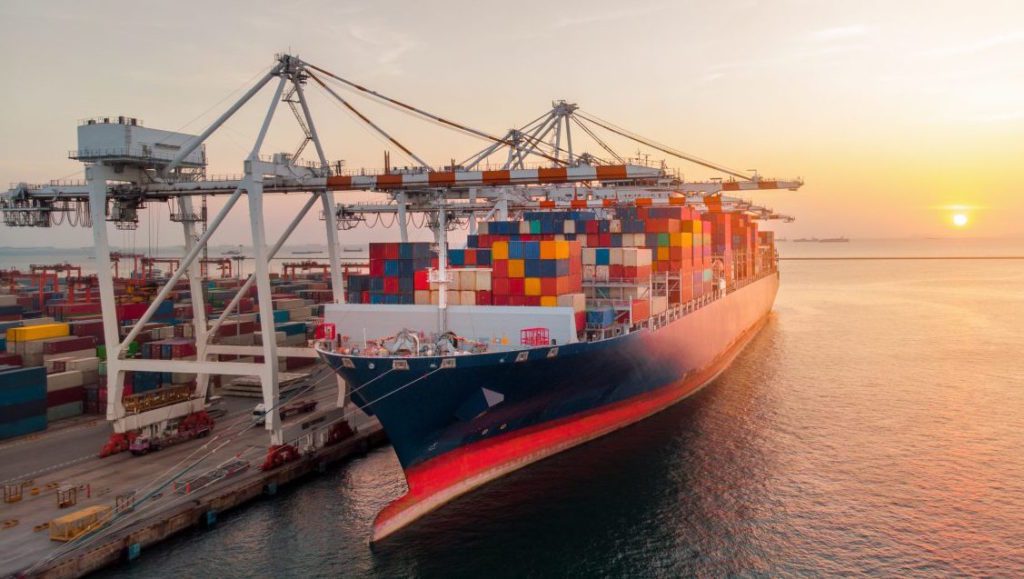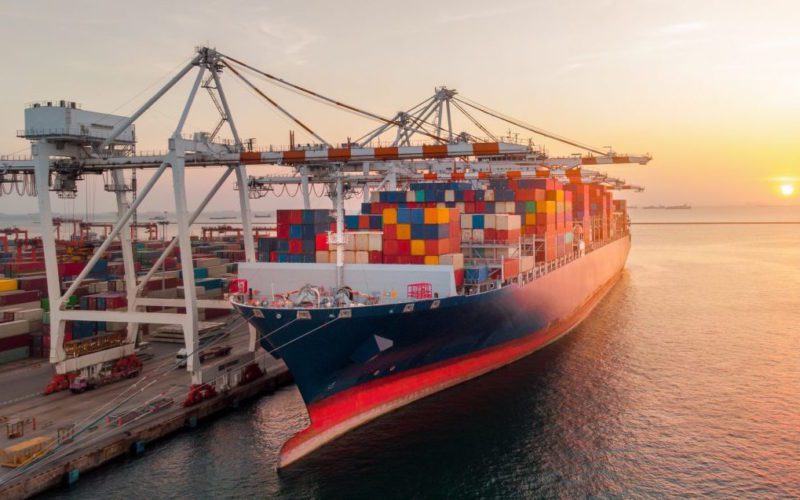(WASHINGTON) — Ocean Conservancy, in partnership with University Maritime Advisory Services (UMAS), has released a new report, “The Maritime Fleet of the USA — The Current Status and Potential for the Future.” The report examines the potential of the United States to become a leader in decarbonizing domestic shipping.
Domestic shipping voyages account for about 70 percent of carbon emissions from the U.S.-flagged shipping fleet, which presents a unique opportunity for U.S. actions to effectively decarbonize the American maritime sector. In 2018, carbon emissions from all U.S.-flagged vessels amounted to around 26 million tonnes. In order to meet climate targets set by the U.S. government, there must be a transition away from these fossil fuels and toward zero-emission fuels.

“The U.S. is calling for the ambitious goal of 100 percent zero-carbon global shipping by 2050, and this report explores how we can lead the way through actions that decarbonize the U.S. domestic fleet,” said Delaine McCullough, policy manager for Ocean Conservancy’s Shipping Emissions program. “Through policies and investments that drive innovation in vessel propulsion systems, zero-emission fuels and infrastructure, the U.S. can strengthen domestic industry, create good jobs and accelerate the global shipping transition.”
More than 40 percent of the energy used by the U.S. fleet could be replaced with zero-emissions solutions this decade. The report estimates that 17 percent of the current U.S. fleet’s energy demands can be substituted with electrification. This would mean, for example, ships relying on battery electrification for shorter voyages or ships running off onshore electric power sources when in harbor. A further 24 percent of the U.S. fleet’s energy demands, oftentimes coming from longer voyages than battery power alone can support, can be met with zero-emissions fuels such as green hydrogen. These technologies are already available and adopting them would require minimal infrastructure updates and can happen within the existing renewal schedule and will not require needing to scrap and rebuild ships ahead of schedule.
“There is enormous potential for the U.S. to be a global leader in maritime decarbonization. This is due to three main factors: energy and technology expertise, lots of coastal and inland shipping activity, and geographically favorable conditions. Our models show that this combination makes the U.S a prime candidate for developing domestic and international green corridors,” said Dr. Jean-Marc Bonello, principal consultant at UMAS. “The current ambitious administration has the chance to make this a decade of change for the industry in the U.S. at the time when rapid action is needed to achieve science-based climate targets.”
Existing U.S. regulations under the Jones Act – which, among other things, requires goods transported between U.S. ports be carried on vessels flying the U.S. flag that are also built in the U.S. and owned and operated by U.S. citizens – provide the U.S. with a unique opportunity to drive decarbonization of domestic shipping and the adoption of zero-emission fuels and electrification. By already relying on U.S. production, the domestic fleet can introduce new zero-carbon vessels as older vessels are decommissioned or retrofitted on already existing schedules. By acting early to decarbonize domestic shipping, the U.S. can create new jobs and help build domestic firms’ market share globally in both shipping and emerging zero-emissions fuels, particularly hydrogen-based fuels.
Across the U.S., the shipping sector can begin decarbonizing today. The Gulf of Mexico and the Northeast and Northwest coasts of the U.S. are primed to move toward electrification given existing routes, and the Pacific, Gulf of Mexico, Great Lakes and East Coast are top candidates for the adoption of zero-emission fuels. By transitioning the domestic fleet away from fossil fuels, the U.S. can become a global leader in shipping decarbonization and kick-start the international transition to clean shipping. Eliminating carbon emissions from the shipping industry is essential if the U.S. and countries around the world are serious about meeting the goals of the Paris Agreement as well as their own domestic climate goals.
– Ocean Conservancy

